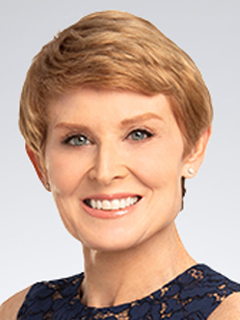Prices increased faster in December
Fed ready to pause rate cuts.

January 15, 2025
The consumer price index (CPI) rose 0.4% in December, a slight acceleration from the pace of November. The CPI rose 2.9% from a year ago, a tick up from 0.3% in November. Year-over-year measures of inflation have risen for four months in a row at the fastest pace since May 2024. We are poised to see easier year-on-year comparisons as we move into the first quarter of 2025, but that provides little solace for those still struggling with the staggeringly high level of prices.
Prices at the gas pump jumped 4.4% during December alone on the heels of a record travel season. AAA estimated that 107 million people drove more than fifty miles during the height of the holiday break, while those on vacation earlier in the month hit an all-time high for December. (The data go back to 1976.)
Prices for food both in grocery stores and away from home rose 0.3% during the month. That is a slight moderation from what we saw in November but prices for food jumped 2.5% from a year ago. Gains in prices at the grocery store were fairly broad-based. Eggs posted the largest gain, with a jump of 3.2%, pushing the year-on-year average to 36.8%. The bird flu has resulted in a record number of chickens culled, which has had a disproportionate impact on egg prices.
The core CPI, which excludes food and energy, rose 0.2% in December, a slight moderation from November. That translates to a 3.2% increase from a year ago, again a slight moderation from the pace of November. New and used vehicle prices spiked on the heels of the strongest new vehicle sales in December since May 2021. Replacement demand following the hurricanes in late September and early October provided an extra lift to those gains.
The consumer sentiment figures revealed a willingness by consumers to buy ahead of price hikes, notably tariffs. This was especially true for big-ticket items such as vehicles. It is too early to tell if they acted on those impulses, but the early January data revealed the same results. That is worrisome for the Federal Reserve, as hoarding is its own self-fulfilling prophecy when it comes to inflation.
The good news is that other big-ticket items, from household furnishings to appliances fell in price. Some of that reflects a strong dollar and currency depreciation abroad. Anecdotal reports suggest that spending on furniture and appliances showed some signs of life on the heels of recent storms and a slight rebound in home sales in the fourth quarter. The retail sales data will tell us more tomorrow.
Shelter costs, which make up about a third of the CPI, rose 0.3% in December, the same as in November. A slight acceleration in rents offset a further cooling of homeowners’ equivalent rent. Hotel room rates fell after surging in November.
Core services inflation, excluding shelter costs, increased by 0.3%. That represents a slight slowdown from the November pace but is still elevated. The index rose 4.2% compared to a year ago, indicating a cooling in the service sector's growth rate since the summer. The gains we are seeing are still more than double the pace pre-pandemic and in the service sector, well above the pace of wage gains. Shipping costs have soared at a double-digit rate from a year ago, along with vehicle insurance. Homeowners insurance has moderated but is poised to move higher on the heels of recent disasters (if you can get it).
The battle against inflation is not yet won.

Diane Swonk,
KPMG Chief Economist
Bottom Line
The path up for inflation was more rapid than the path down and remains bumpy. The trend is in the right direction for the Federal Reserve, but not as rapid as officials hoped. Hence, the vote to cut rates was not unanimous; all are ready to pause in January. The recent surge in bond yields and spillover into mortgage rates will have their own chilling effect on the housing market in the first quarter. However, the battle against inflation is not yet won; the ground for a resurgence in prices is still fertile. We still expect two rate cuts in 2025, but that is contingent on the course of the incoming administration’s agenda. Wait and see.
Explore more

Fed plays whack-a-mole with inflation
The CPI data came in warm and mixed.

KPMG Economics
A source for unbiased economic intelligence to help improve strategic decision-making.

New year, new agenda: Beware of unintended consequences
We may be understating the financial market reaction to escalation of geopolitical tensions.
Subscribe to insights from KPMG Economics
KPMG Economics distributes a wide selection of insight and analysis to help businesses make informed decisions.
Meet our team
